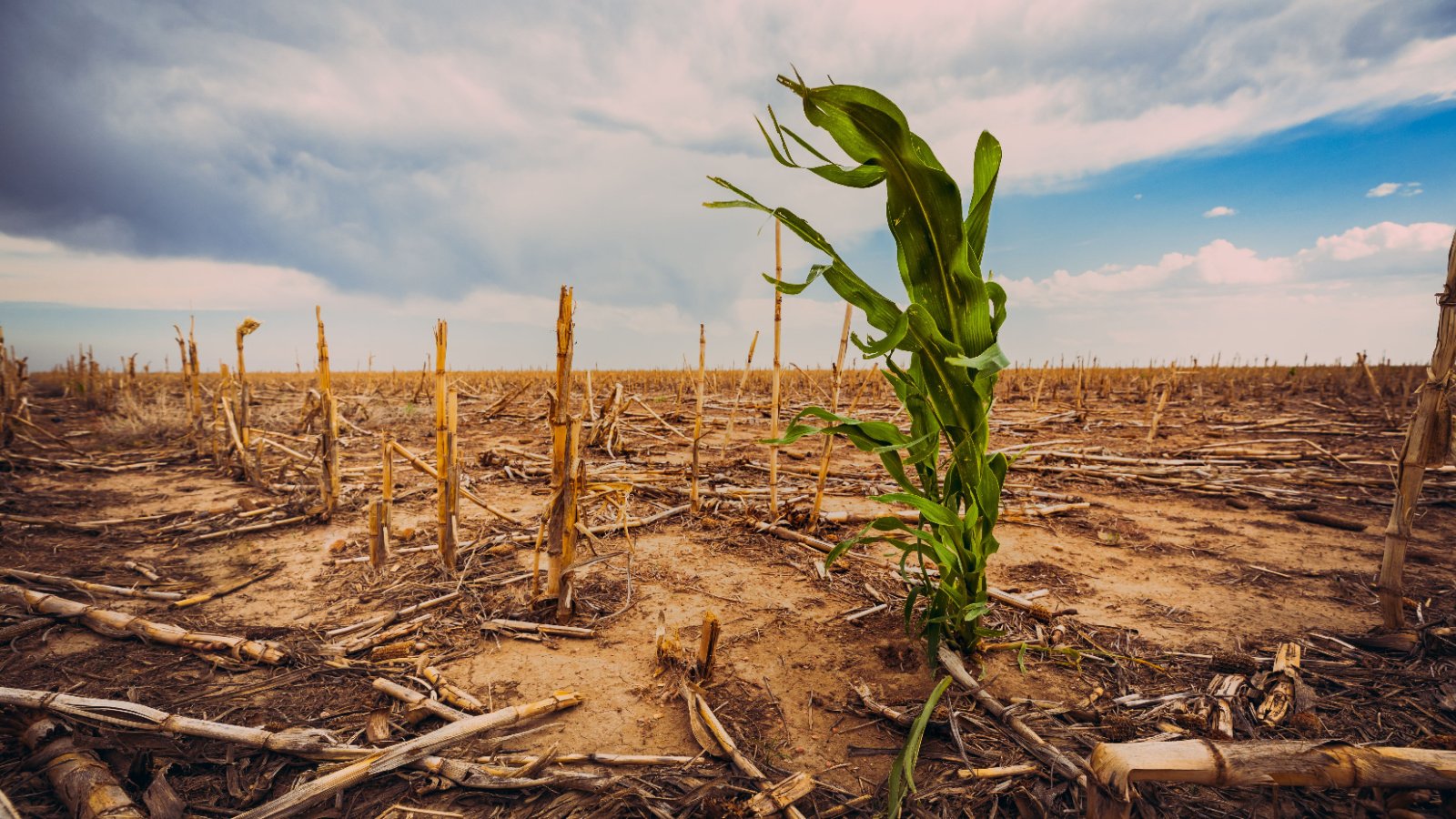While Texas may be a popular relocation destination for its booming economy and engaging cultural scene, there are compelling reasons to think twice before making the move. The state’s relentless heat, high property taxes, and sprawling distances can dampen the appeal for many. Potential newcomers should consider these factors carefully before making the move.
Intense Heat

Texas is known for its scorching temperatures, especially during the long summer months. Surviving the heat requires constant air conditioning, which can be costly. This extreme weather can be a significant adjustment for those used to milder climates.
Property Taxes

While Texas boasts no state income tax, its property taxes are among the highest in the nation. Homeowners can expect to pay a hefty sum annually, making it a costly affair for those looking to settle down. This can offset the financial benefits gained from the absence of state income tax.
Traffic Congestion

Major cities like Houston and Austin are notorious for their heavy traffic, with some of the worst congestion in the United States. Commuting can take up a significant portion of your day, impacting your work-life balance. Public transportation options are limited, exacerbating the problem.
Allergens

Texas is infamous for its high pollen counts, particularly cedar fever in the central region, which can be miserable for allergy sufferers. The air quality can lead to yearly discomfort from allergies, affecting overall health and quality of life. Many residents find themselves reliant on medications to handle the symptoms.
Water Scarcity

Much of Texas faces periodic droughts, leading to strict water usage restrictions. The state’s growing population continues to strain its water resources, which can lead to long-term sustainability issues. This environmental concern is critical for those looking to live in Texas.
Distance Between Cities

Texas’ vast size means that cities and towns are spread out over large distances. Traveling across the state can take hours, making it difficult to visit friends and family. This can lead to a sense of isolation and increased travel costs.
Political Climate

The state’s distinctly conservative political scene might not appeal to everyone. The policies and political culture can be a significant adjustment for those from more liberal regions. This can affect personal and professional life, influencing everything from social interactions to workplace dynamics.
Limited Cultural Diversity in Rural Areas

While urban centers like Dallas and Houston boast rich cultural diversity, rural areas are much less so. This lack of diversity can be a shock to newcomers from more cosmopolitan backgrounds. It can also impact access to diverse cultural experiences and international cuisine.
Natural Disasters

Texas is prone to a variety of natural disasters, including hurricanes, tornadoes, and floods. The threat of significant property damage and personal danger during certain times of the year can be a constant worry. Recovery and rebuilding can also disrupt life and be financially draining.
Education System Challenges

Despite some excellent schools, Texas struggles with educational disparities and underfunding in many public school districts. Parents may find it challenging to find quality education without resorting to private schooling. The state’s performance in educational rankings is often poor.
Job Market Fluctuations

While Texas has a booming job market in industries like technology and energy, it also experiences significant fluctuations. Economic downturns, particularly in the oil sector, can lead to job instability. This makes certain regions susceptible to boom-and-bust cycles.
Healthcare Accessibility

Texas has one of the highest rates of uninsured residents in the United States. Access to affordable and quality healthcare can be a significant concern, especially in rural areas. This lack of healthcare support can be daunting for families and the elderly.
Housing Market Boom

The rapid growth of the housing market in major cities has led to inflated real estate prices. Finding affordable housing in urban centers can be challenging without moving to the outskirts. This surge has pushed many locals out of their neighborhoods due to gentrification.
Social Services Limitations

Texas has limited social services in areas such as mental health and public assistance. Those in need may find fewer resources compared to states with more robust social service programs. This can affect the most vulnerable populations, including children and the disabled.
Cultural Adjustment

For those moving from other regions, adjusting to the Texas culture can be challenging. The state has a strong identity marked by its history, politics, and social norms. Adapting to this can take time and may feel isolating for newcomers.
Environmental Regulations

Texas’ lax environmental regulations have led to higher pollution levels, particularly in industrial areas. This can affect health, quality of life, and enjoyment of natural resources. Concerns about environmental sustainability are growing among residents.
Crime Rates

Certain areas in Texas, particularly larger cities, have high crime rates that can be concerning for new residents. Understanding the safety of different neighborhoods is crucial when moving to a new city. This may require additional security measures and precautions.
Public Transportation Shortcomings

Apart from a few urban areas, Texas lacks comprehensive public transportation systems. This can limit mobility for those who do not drive or prefer not to own a car. It also contributes to traffic congestion and environmental issues from increased car usage.
Seasonal Allure

The charm of Texas can be seasonal, with activities and events being more vibrant during certain times of the year. For example, the scorching summer heat can limit outdoor activities, which are more enjoyable in the spring or fall.
Invasive Species

Texas faces challenges with invasive species, such as the feral hog population, which can damage property and ecosystems. Managing these issues requires resources and can be a nuisance for property owners.
Retirement Considerations

While Texas can be an attractive retirement destination due to tax benefits, other factors such as climate, healthcare, and transportation can detract from its appeal. Retirees need to weigh these aspects carefully when considering relocating.









High Line ist 3,2 km von Even Midtown East – Grand
Central, An Ihg Hotel New York und UN-Hauptquartier ist 550 Meter entfernt.
Das Hotel bietet den perfekten Standort 4 km vom
New York-Stadtzentrum. National September 11
Memorial und Museum ist nur 4,9 km vom Hotel entfernt.
Ellis Island ist 4,5 km vom Hotel entfernt, während
National September 11 Memorial und Museum 3 km vom Grundstück entfernt ist.
Charles Memorial Park ist 3,5 km und Phil “Scooter” Rizzuto Park ist 3,
2 km von der Unterkunft entfernt.
Das New York-New York Hotel & Casino liegt im Herzen des Las
Vegas Strips und bietet einen lebhaften Aufenthalt mit einer Vielzahl von Unterhaltungsmöglichkeiten. Das Hotel mit einem
Aufzug verfügt über 2024 Nichtraucherzimmer. Das New York New York Hotel & Casino verfügt über einen großen saisonalen Poolbereich, der eine
willkommene Abkühlung mitten in der Wüste bietet.
Das 3-Sterne Hampton Inn NY-JFK New York liegt im Stadtteil Queens und verfügt über eine Bibliothek und einen Kamin. Die Unterkunft liegt in 4 km Entfernung vom Stadtzentrum.
South Street Seaport ist 2,9 km vom Hotel entfernt und Long Island University Brooklyn Campus ist 5 Gehminuten davon entfernt.
Baseballstadion Citi Field ist 1 km von Holiday Inn Laguardia Airport New
York und Hinton Park ist 300 Meter entfernt. Baseballstadion Citi Field ist
7 km vom Hotel entfernt und die Bushaltestelle Maurice Avenue & 54 Avenue ist 300
Meter von der Unterkunft entfernt.
References:
https://online-spielhallen.de/vulkan-vegas-casino-freispiele-ihr-weg-zu-extra-spielspas/
Zudem bietet sie regelmäßig Sonderaktionen und Events, die für zusätzliche Unterhaltung sorgen.
Das Angebot umfasst traditionelle Tischspiele wie Roulette
und Blackjack sowie rund 180 Spielautomaten, darunter viele
Jackpot-Anlagen und Multi-Roulette-Stationen. Im Herzen der Landeshauptstadt Mainz gelegen, verbindet
die Spielbank Mainz klassisches Casinoflair mit
modernem Ambiente. Im prachtvollen Kurhaus von Wiesbaden befindet sich eine
der exklusivsten Spielbanken Europas. Wer nicht vor Ort spielen möchte, findet online eine Vielzahl alternativer Angebote,
denn viele Casinospiele können inzwischen im Internet gespielt werden.
Die bunte Welt der Automaten mit ihren Lichtern und Klängen kann fesselnd
sein und bietet eine schnelle Ablenkung vom Alltag.
Eine Spielhalle in Frankfurt ist also ein Ort, der sich dem legalen, aber
reglementierten Automatenspiel widmet und eine andere
Erfahrung bietet als die eleganten, größeren Spielbanken außerhalb der Stadt.
Die Spiele sind in der Regel einfach zu verstehen und bieten schnelle
Spielrunden. Diese Geldspielautomaten, oft umgangssprachlich als „einarmige Banditen“ oder „Slots“ bezeichnet, bilden das Herzstück
einer jeden Spielhalle. Wie bereits erwähnt, sind die
Etablissements, die du in Frankfurt unter dem Begriff „Spielcasino“ finden wirst, in den allermeisten Fällen Spielhallen.
References:
https://online-spielhallen.de/tipico-casino-aktionscode-ihr-weg-zu-exklusiven-vorteilen/
The allure of Aztec Gold lies in its high prize pool, making it a
standout promotion among regular players. Thursdays at
The Ville are marked by the Aztec Gold promotion, where players can win a share of over 315,000 Vantage
Dollars. For those looking to increase their chances of
winning significant rewards, the Mega Members Jackpot is a must-attend event.
With a major jackpot up for grabs, this promotion provides players with a reason to return every Wednesday,
adding extra incentive for membership and regular participation. This promotion not only draws in regular casino-goers but also entices newcomers with the opportunity to win both cash
and valuable vouchers.
The gambling act does not restrict International casino sites from offering
the players their favourite casino games.
This casino lies on the Gold Coast and has succeeded and offering Australian players an amazing gambling
experience. Players look forward to this weekly event as it
offers more than just gaming rewards—it provides practical, tangible prizes that can be
used outside of the casino. For players seeking a more relaxed gaming
experience, Keno at The Ville Resort Casino offers a lottery-style game that combines simplicity with excitement.
Guests can enjoy a wide range of casino games, from classic table games like blackjack and roulette to modern poker machines.
With a great selection of gaming machines and table games along with TAB
and Keno facilities, this is definitely the only place to play.
Satisfied with the hotel, it’s a great place for staying in Townsville.
Check out the carefully selected restaurants and attractions near the
hotel The hotel serves a buffet breakfast.
References:
https://blackcoin.co/fastest-withdrawal-online-casinos/
In October 2025, OpenAI reported that approximately 0.15% of ChatGPT’s active users in a given week have conversations including explicit indicators of potential suicidal planning or intent, translating to more than a million people weekly.
Despite decades of using AI, Wall Street professionals report that consistently beating
the market with AI, including recent large language models, is challenging due
to limited and noisy financial data. The elegantly
appointed lounge features separate living and dining areas which can host up to six people and
has two private balconies.Bedrooms offer guests a sanctuary with a marble ensuite and a balcony with magnificent views.
Text-generating AI models like ChatGPT have a tendency to regurgitate content
from their training data. But OpenAI recently disclosed a bug,
since fixed, that exposed the titles of some users’ conversations to other
people on the service.
The update enables real-time conversations, and the AI assistant is said to be
more personable and interrupts users less often. OpenAI also said Mark Chen would step into the expanded role of chief research officer, and Julia Villagra will take on the role of chief people officer.
Brad Lightcap, OpenAI’s chief operating officer, will lead the company’s
global expansion and manage corporate partnerships
as CEO Sam Altman shifts his focus to research and products, according to a blog post from
OpenAI.
References:
https://blackcoin.co/best-10-online-casino-bonuses/
In light of the platform’s newfound popularity and use during
lockdowns, Roblox introduced a new “Party Place” system, which were specific spaces that players could use to
arrange meetups and events, such as virtual concerts.
The most popular game on the platform around this time was the role-playing game Adopt Me!
Additionally, the average number of daily active players
in 2020 had increased by 85% compared to 2019.
Additionally, in 2019, Roblox released Roblox Premium, which replaced its
previous Builders Club memberships. In April 2016, Roblox became available for Oculus Rift, alongside a variety of quality-of-life features made specifically for that platform.
In August 2019, Roblox began allowing select users to upload their own accessories, a service that was later expanded to include various other types of accessories.
The platform’s growth was further accelerated by the COVID-19 pandemic
beginning in 2020, where lockdowns led tens of millions of children to use Roblox as a means of communication. This also came with a feature called Smooth Terrain, which increased the graphic fidelity of in-game terrain.
References:
https://blackcoin.co/60_platinum-club-vip-casino_rewrite_1/
Minnesota responded with a strong offensive drive.
It’s an appropriate way for the Lions’ postseason run to end, as Detroit hasn’t
looked anything like their former selves in a long time.
They finished with 231 yards, marking their third-worst effort under Campbell.
Same with Kalif Raymond, Amik Robertson, Al-Quadin Muhammad and others players who aren’t the biggest names but
have been integral ones in Detroit’s recent success. In an NFL where over half of the
games are decided by one possession, that can be chalked up
to some regression luck-wise and some regression from the team.
But after being seventh in fourth-down conversion rate last year, Detroit is 20th this season through 16 weeks.
The Texans beat the Raiders in 2006 with minus-5
net passing yards. Asked if there are any big-picture things he’s going to
look into after missing the playoffs, Campbell said,
“I’m gonna be looking at a lot of things, because I do not like being home for the playoffs, and I know our guys don’t either.” “No,” Goff said plainly when asked if he ever could
have envisioned missing the playoffs after a 15-2 campaign. The Lions,
who had a league-best eight giveaways all season entering Thursday, turned it
over six times. Nearly two years to the
day after the Detroit Lions snapped a 30-year drought for the division title with a win at Minnesota on Christmas
Eve, Detroit’s 2025 playoff hopes were officially laid
to rest at U.S. In 2009, a shopping mall called “The Commons” was completed on the campus, bringing 1.4 million square feet (130,
000 m2) of retail space, as well as restaurants, a soccer field
and pub to the West Campus.
References:
https://blackcoin.co/paris-las-vegas-hotel-casino-adults-only/
casinos paypal
References:
mapnova.com.co
online casino mit paypal einzahlung
References:
jobs.jaylock-ph.com
casino online uk paypal
References:
almeslek.com
paypal casino android
References:
https://dcts.co.kr
usa casino online paypal
References:
https://jobcopeu.com/employer/australian-no-deposit-bonus-casino-codes-fresh-list-december-2025/
online casino australia paypal
References:
https://neulbom24.co.kr/bbs/board.php?bo_table=free&wr_id=1251